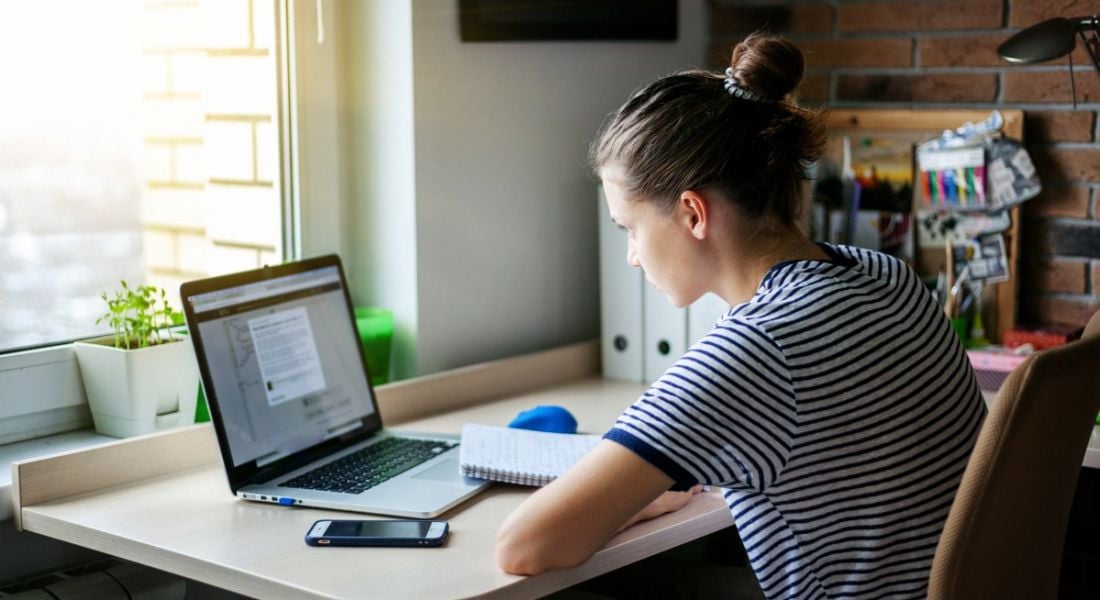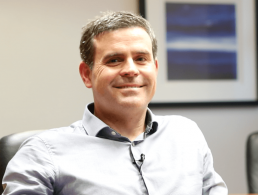As 2018 nears its end, Careers editor Jenny Darmody reflects on one of most important lessons she learned this year for her career.
I’m a massive fan of self-reflection. I always like to look back at what I’ve done in the past and evaluate whether or not it was a good thing, or if it can be improved.
And, if I’ve learned one thing from the future-of-work experts I’ve spoken to this year, it’s that things can always be improved because we will never stop learning.
Around this time last year, I looked back at 10 lessons I learned during 2017 and turned them into career-boosting resolutions for the new year.
A theme that weaved a lot of them together was the importance of avoiding overwork. We all lead such busy lives now and, as I’ve said before, there is so much advice out there telling you how to make sure you get absolutely everything done. For me, the instinct to achieve maximum productivity runs deep, but I have spent 2018 paying attention to how this practice is not only exhausting, it’s damaging.
For the more frequent Siliconrepublic.com readers, you will know that I’ve been preaching about the importance of a healthy work-life balance all year. But it’s all well and good to talk about these things from behind my own screen without really understanding what your workday is like and how busy you are.
From one reformed workaholic to another, know that I’ve gone through my own journey of learning the self-discipline I needed to achieve my optimum work-life balance.
So, when I share my experience of improving my own working day and consciously learning the habits necessary to switch off, it’s not coming from research about what you should do to improve – it’s coming from what I did and how I made it work.
The importance of making a habit
Research says it takes 21 days to make or break a habit – though the genuine data around this can become quite complicated when you’re looking more closely at what habits you’re actually trying to form. Still, 21 days is a good place to start from.
Given that you’re more than likely only in work five days a week, let’s say it’ll take you a month to make a habit. Since everyone is different, the actual number is fairly arbitrary but knowing it takes time and commitment to form a habit was enough to force me to stick to it.
There were three particular habits I wanted to nail at the beginning of the year: take my full hour-long lunch break away from desk every day, leave on time every day and stop thinking about work outside of the office.
These were habits I needed to constantly remind myself about, not simply something I could say at the beginning of the year. After all, these were bad habits I had allowed to flourish without realising over a long period of time. It would take a conscious effort to break them.
How I broke my bad habits
It’s worth pointing out that these bad habits were my own doing. Breaking workaholic habits can be much more difficult when unrealistic deadlines or workloads are placed upon you.
Whether your overworking tendencies come from yourself or your boss, though, the results are the same: burnout.
If you feel like you can’t reduce your workload because of the expectations on you, you need to talk to your employer about this. After all, burnout is bad for both sides.
For those who can relate to my own struggles with self-discipline, here’s what I did to consciously improve my own work-life balance.
As a massive fan of productivity tools such as Slack and good old-fashioned to-do lists, I started incorporating my lunch break into my to-do list. I then set reminders to make sure I actually walked away from my desk. I also gave myself something to do during that lunch break that wasn’t just eating – for example, reading a short story.
Leaving on time was a little more difficult. When your work day ends at 5.30pm, it’s easy to create a habit of working right up until that time, not taking into account how long it can take to wrap things up at the end of the day. When researching this during the year, I was able to incorporate new habits into my own day, ensuring that I finished my daily tasks around 5pm and started wrapping things up so that I actually had my coat on at 5.30pm.
The biggest challenge to my own self-discipline was switching off after work. I had things to keep an eye on and my phone offers a very easy portal through which I can monitor work-related things. But this is perhaps the golden rule I learned this year about self-discipline: no one is able to get you to switch off from work except yourself. This is something you’re actively going to have to say no to when you find yourself reaching for the work emails.
Placing value on self-discipline
When you’re used to remaining permanently switched on, an entire change in attitude needs to happen. You need to start telling yourself why you shouldn’t be checking in with work when you’re not working.
I have previously listed the negative effects overworking has on your health, and it’s true – increased stress is detrimental to your health. But that’s not what actually made me switch off.
For a productivity addict such as myself, I needed to train my brain to realise how lacking in time management skills I was if I needed to work through lunch, stay late and still check up on things outside of work.
Having bad time management skills isn’t something that sat well with me, so it was a major driving force to train myself to be more disciplined at work. Suddenly, improving my ability to switch off became a challenge and then it became easier to see the obvious benefits to my health, both mental and physical.
Finally, it’s important for us all to remember that we’re getting paid to work for a certain number of hours, so all of those additional minutes you’re giving to work are essentially free labour.
In my time so far as Careers editor, I was able to confidently tell readers the importance of taking regular breaks, avoiding overwork and achieving a good-work life balance. I was confident that, for the most part, I was heeding my own advice.
But self-reflection is always important, and challenging yourself to do better by your own health should always be on your list of New Year’s resolutions – I know it will continue to be on mine every year.




